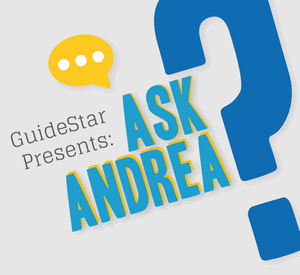I read Seth Godin’s blog pretty much every day. Yes, amazingly enough, he posts each and every day. And that, in and of itself, impresses me.
Most days, I find it worth reading. Some days it’s truly illuminating. Other days it just gives me food for thought.
And that’s what happened today.
In his post on Retribution, Seth highlights a comment by Zig Ziglar that caught my eye. Seth says:
We can react or respond. … When we react to a medicine, that’s a bad thing. When we respond, it’s working.”
Seth seems to think that we have a choice about whether to react or respond. But I think it’s more complicated than that.
Reaction First, then Response
I believe that everyone reacts AND responds. Often you react first, and then, after a minute or a day or a week later, you respond.
You don’t choose to react — it’s your Lizard Brain triggering a dose of adrenaline. Lizard Brain is what I (and others) call the part of your brain that’s wired to keep you safe. It has a hair trigger and almost always reacts immediately, without waiting for conscious thought.
That Lizard Brain dose of adrenaline either makes you run or makes you aggressive — it triggers your fight or flight!
But then, a bit later, when you’ve figured out that you’re not actually being threatened, you can respond in a more thoughtful, nuanced way. In my experience, it’s one first and then the other. First react, then respond. One doesn’t preclude the other; it simply precedes it.
When Lizard Brain Goes Awry…
I suspect that police officers and people in prolonged combat situations develop over-active Lizard Brains. Perhaps when you are too often in danger, your Lizard Brain becomes dominant and it takes longer to shift from being reactive to being responsive. All too often, the immediate reaction leads to violence that can’t be undone.
Such is the tragic fate of Tamir Rice, who was shot by police less than two seconds after they got to the scene. I wonder if the officers would have responded more reasonably had they waited a few minutes before they drew their guns. Perhaps not, but it’s worth a thought.
My heart aches for young Tamir Rice. Twelve years old and dead as the result of an overactive Lizard Brain. He deserved to live.
Do You Respond or React?
Pay attention to when you react to a situation and when you respond. Is one more dominant than the other? Do they happen in sequence? When you’ve had a scare, how long does it take you to get over that initial jolt of adrenaline?
Each of us has different patterns and you’ll find it helpful to know yours in advance. It might just save someone’s life.
Have you had a rub with your Lizard Brain recently? Tell us about it in the comments.

Hi Andrea: I totally agree that we React AND Respond. In fact, I was researching the Zig/Seth quote (love Seth’s blog too) to share the same opinion, only referring to horse brain instead of lizard. I partner with horses to help human development, a process known as equine-assisted learning. It occurred to me that part of why this has the potential to be such a powerful learning tool for humans is because of the horse facilitator provides more obvious “reactions” and responses.” Thanks for tying in the lizard brain piece, love how neuroscience that is helping us to better understand human behavior.
Thanks Tracy for this wonderful and interesting comment. When I was a girl I was totally in love with horses. I think I spent more time at the stable than anywhere else. Perhaps I learned then what I know now decades later!
Andrea – I really like what you’ve written and have a question; I recall having heard that we actually have four possible responses; Fight, Flight, Faint and Fawn. (The fourth is actually another four letter F word.) If this is true, how might that affect your perspective on things?